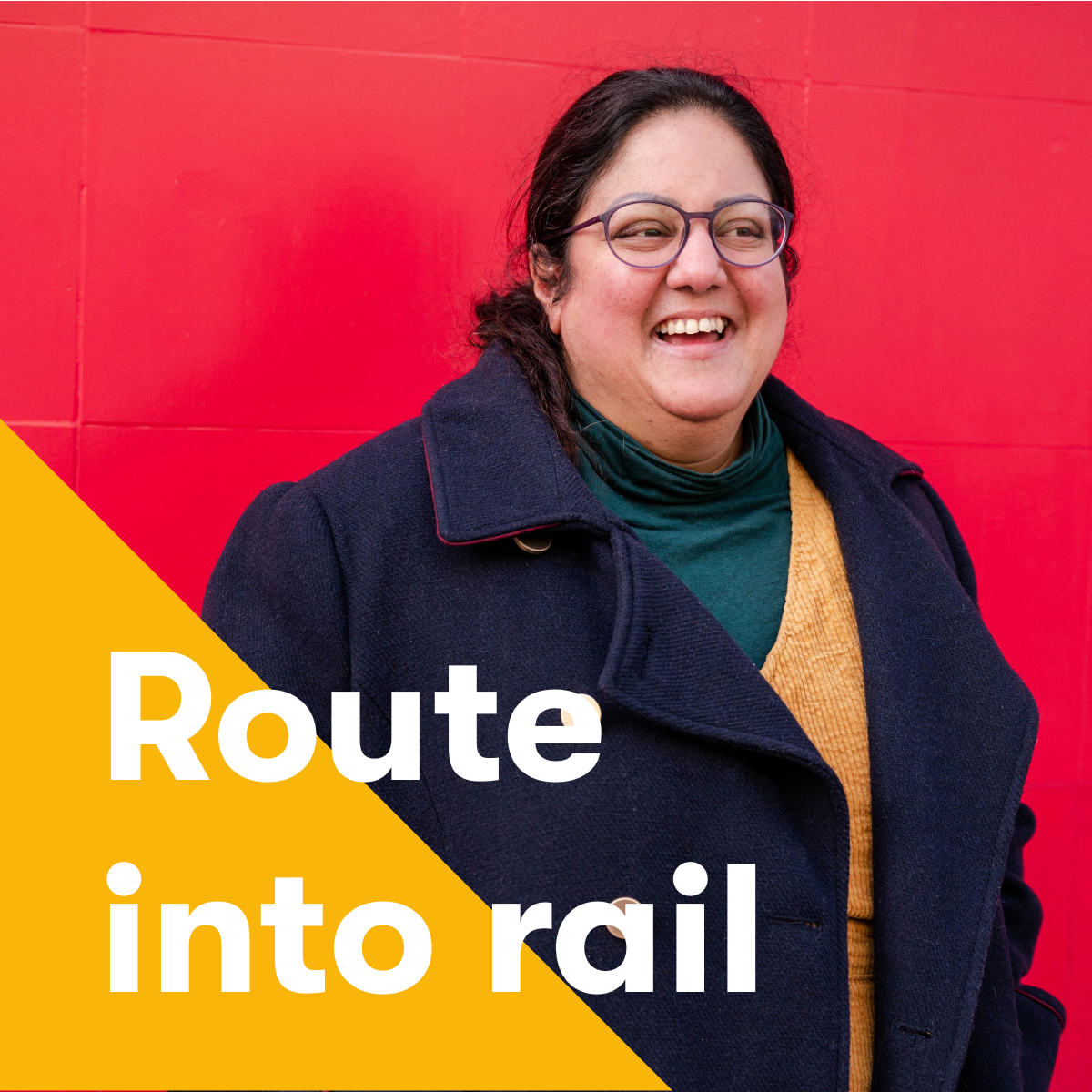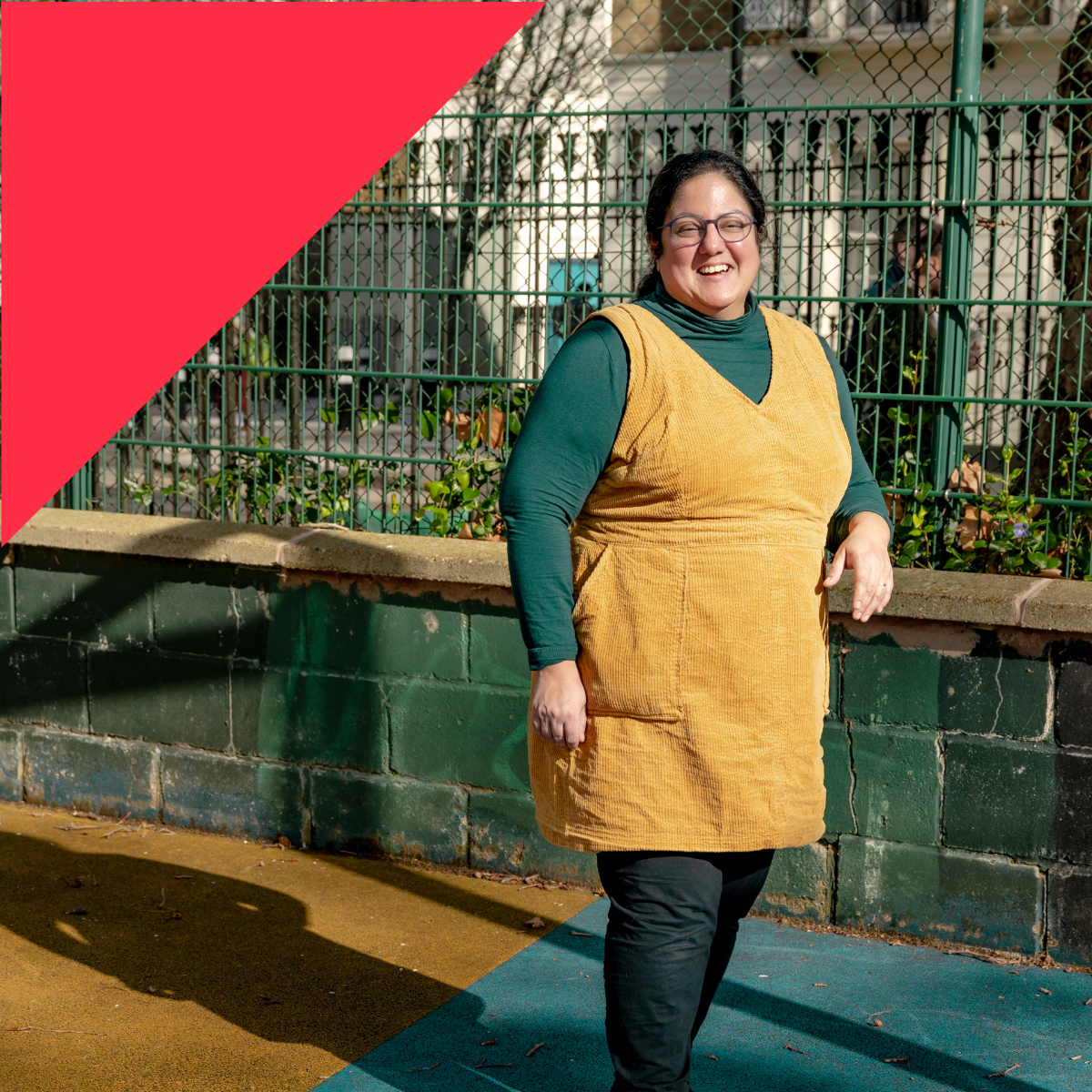Tanya's Route into Rail
Tanya Galliara, based in Reading, Head of Adjacent Transport Mode Integration, EWR Co 2 years 3 months.
Tanya is an engineer by trade, and along with her 17 years working on some of the big projects in the rail industry home and abroad, she’s also worked in nuclear, oil, gas and wind energy sectors, and civil aviation – following in the footsteps of her father who came from India to England in 1970 to study and qualify with a PHD in Nuclear Physics.

“His career has taken a very different turn to what it could have been, and even now, diagnosed with a terminal health condition, he is still working, but has found new passions, which are driving him to engage with the world around him. However, he has never felt able to talk about the impact of all of this on him. It is only in the last few years, as he has come to terms with his condition, that I have learnt how hard it has been for him to admit to needing help, including asking me for help, let alone colleagues and friends.” This is a lesson Tanya has taken forward in her own career with respect to supporting colleagues in being their authentic selves at work.

As a young person Tanya landed almost by accident in rail working with a rolling stock company for a gap year placement at university. “I was given a lot of encouragement by the more experienced people in the team who helped me develop as an all-rounder, and gave me responsibilities beyond what a work experience student would usually get.”
When Tanya joined the rail industry her perception was that it is was quite fragmented and difficult to pick a career path. “I encountered some biases when out at TOC depots, particularly as a young and inexperienced person at the start of my career. There was a lot of banter, and I didn’t know how to respond to it. It was also difficult to balance my home and work life, and to contend with a lack of understanding around female health. Now I think the industry has changed, there’s a wider range of projects to work on these days, but still some mindsets need to change, particularly in the UK. I personally have benefitted from various support networks to encourage women and ethnic minorities into what is still, predominately a white male field. I have been very lucky. My family and my husband have always supported my career choices, and I have had some fantastic role models both male and female.”
While Tanya is a brilliant advocate for women in rail, this is not to the exclusion of male colleagues who often lack support networks when times are tough. Her own husband has spent most of his working years as a carer to his mum and dad: “He turned down several opportunities, and in our life together, has made the same conscious decision that my career comes first, at the expense of his own interests. He would say this gave him the privilege of caring for his father when he was ill with dementia, however he now is trying to work out what he wants from life. And he wishes he had reached out and done things differently when he was younger, as he has no support network other than me trying to cheerleader him on. But I can’t answer all the questions he has.”
“I don’t think it matters whether we are male, female, or from what background we come from. I do believe however that for all workplaces to change for the better, we need to understand what is important for all individuals. All of us need to stand up and engage, to ask for things to help us do the things that matter for us. And without a significant part of our organisation engaging in that conversation, we won’t have a complete picture or be able to implement changes that work for us all – enabling us to be our most productive selves.”
To encourage more women to join the rail sector, Tanya would like to see better flexibility and that includes encouraging everyone to have a better work/life balance and to be themselves at work.

